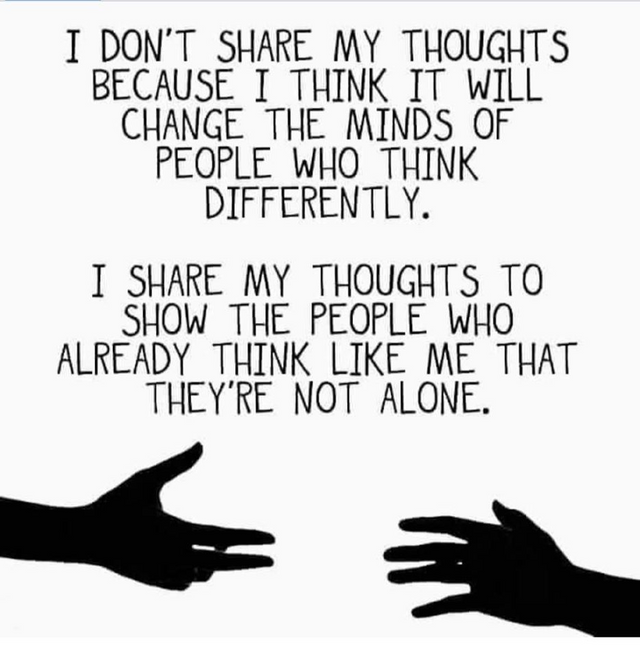
Topical debates on social media are often heated exchanges between people with distinct ideologies. A casual exchange on the internet usually yields very little in terms of resolutions to ideological beliefs and yet, the debates rage strong. Why is it then, that given the stiff reluctance of the parties to take heed the arguments of the opposing party, do debates hold value?
Its not about changing people's minds.
.. Because people have mostly made up their minds about things already. Most people are eager to oppose your opinions and you would be right to think that anything you say holds little persuasive value against them. Even if you do win an argument with them, the result is likely to be resentment and in their heads, a confirmation of their losing belief.
This calls to question the value of debate on social media at all. After-all, what is the point of trying to convince people of things they have already made their mind up on?
The point that I argue, is that through these debates, you are able to influence those who have yet to form a hardened position and allow them to follow the debate as it unfolds to form their own opinion.
Failing to convince your opponent but putting in a strong argument will likely win over many spectators.
Even the most rigid of opinions can be swayed
While it is true that those who hold strong beliefs will argue tooth and nail, even past the point at which they are evidently "wrong", there remains a distinct opportunity to change the hearts and minds of your opponents.
One way of achieving this is through the "Socratic method" where one party makes clear that the other holds two irreconcilable and contradicting views at the same time. Pending assessment of their own intellectual integrity, they should realise that holding both views simultaneously is unconscionable. Their views on one will have to change, or otherwise be discarded.
Do not discount emotional bias
People form opinions and biases based on emotion more than rationale. Most of the time, people have arrived at a set of beliefs through some reasoning, and trying to reason someone out of these beliefs is usually a dead end. Employing the art of persuasion allows you to appeal to the emotional and decisive things in their psyche which purvey their sense of righteousness.
One who seeks to show their moral authority through signalling compassion and tolerance to others while sanctimoniously dismissing you, is only likely to discard their pretentiousness if you are able to show that they are actually hurting the people they intended to help.
But even then, this is unlikely to change the interlocutor because they were not truly interested in helping others all along. They were only interested in helping their own image. Their opinion was only valuable as a cunning display of virtue which buys acceptance into the circle of friends who share the same view. Not because it was the correct view.